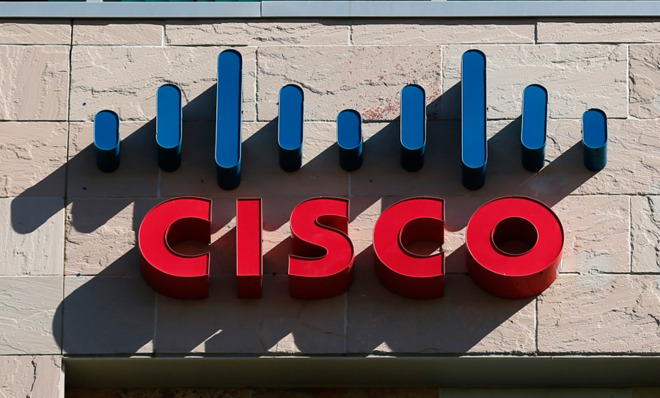How the NSA is hurting America's tech industry — and helping China's
International customers are fleeing tech titans like Cisco over fears of U.S. snooping. But they'll likely face similar surveillance by working with Chinese competitors.

A free daily email with the biggest news stories of the day – and the best features from TheWeek.com
You are now subscribed
Your newsletter sign-up was successful
The recent revelations about internet surveillance by the National Security Agency have created a "level of uncertainty or concern" among Cisco System's customers internationally, says CFO Frank Calderone — and that has contributed to sliding demand for Cisco's products.
Last quarter, new orders fell 12 percent in the developing world, with orders in Brazil down 25 percent and in Russia down 30 percent. The governments of both Brazil and Russia have expressed serious concern over the revelations about NSA surveillance programs leaked by Edward Snowden. And Cisco isn't alone — IBM's sales have also fallen on similar concerns.
It is understandable that companies and governments in nations like Brazil and Russia might be particularly concerned about American hardware and software having hidden backdoors for NSA surveillance. The Snowden revelations contained evidence that the NSA has forced American technology and communication companies — including Verizon, Google, Yahoo, and Facebook — into cooperating with its ongoing surveillance programs. It is certainly not unreasonable for companies and governments in other countries to want to avoid being spied on by American intelligence agencies, just as Americans would be (and have been) outraged to discover that intelligence agencies in other countries are spying on them.
The Week
Escape your echo chamber. Get the facts behind the news, plus analysis from multiple perspectives.

Sign up for The Week's Free Newsletters
From our morning news briefing to a weekly Good News Newsletter, get the best of The Week delivered directly to your inbox.
From our morning news briefing to a weekly Good News Newsletter, get the best of The Week delivered directly to your inbox.
So as we move toward a new era in computing and server technology — the so-called "internet of things," a realm projected to be worth up to $8.9 trillion by 2020, in which American companies like Cisco are in hot competition against Chinese companies like Huawei and ZTE — it would not be surprising if American companies fell behind in market share simply because customers wanted to avoid being spied on by the NSA. Countries, companies, and communities that don't want to be surveilled are even starting to talk about building separate self-contained internets for critical infrastructure.
But companies' and countries' aversion to the NSA seems to miss the bigger picture. Certainly, Edward Snowden's revelations have disclosed a lot about the scope and shape of the NSA's spying activities. But there hasn't been a comparable level of disclosure about the activities of intelligence agencies in foreign countries, including Brazil, Russia, and China. Consumers moving away from American networking companies out of a desire to avoid surveillance, and adopting Chinese networking technology instead, could be jumping out of the frying pan and into the fire. China is still an authoritarian one-party state in which dissidents are routinely put to death. China has an active and overt internet censorship program. Chinese technology products may have just as many backdoors and surveillance technologies as American products — the details just haven't been leaked.
For now — at least until a Chinese leaker does to China what Edward Snowden did to the NSA — it seems that American technology companies may suffer against their Chinese competitors. There's really not much the NSA can do to remedy the situation, especially after the NSA director was caught misleading Congress. Except, perhaps, collecting evidence of the surveillance programs of other nations and leaking those to the public…
A free daily email with the biggest news stories of the day – and the best features from TheWeek.com
John Aziz is the economics and business correspondent at TheWeek.com. He is also an associate editor at Pieria.co.uk. Previously his work has appeared on Business Insider, Zero Hedge, and Noahpinion.
-
 The ‘ravenous’ demand for Cornish minerals
The ‘ravenous’ demand for Cornish mineralsUnder the Radar Growing need for critical minerals to power tech has intensified ‘appetite’ for lithium, which could be a ‘huge boon’ for local economy
-
 Why are election experts taking Trump’s midterm threats seriously?
Why are election experts taking Trump’s midterm threats seriously?IN THE SPOTLIGHT As the president muses about polling place deployments and a centralized electoral system aimed at one-party control, lawmakers are taking this administration at its word
-
 ‘Restaurateurs have become millionaires’
‘Restaurateurs have become millionaires’Instant Opinion Opinion, comment and editorials of the day